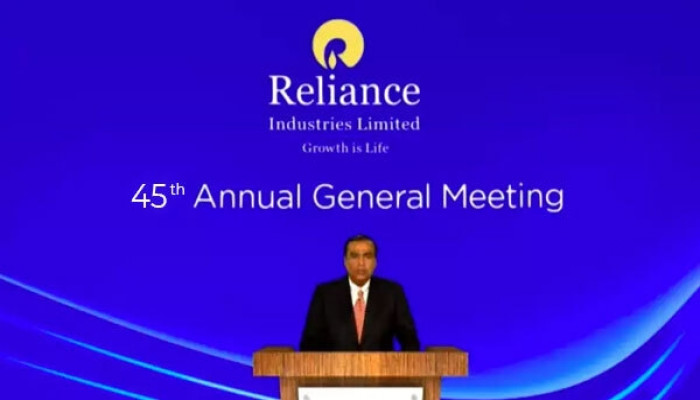RIL to establish end-to-end battery gigafactory by 2026
- In Reports
- 07:52 PM, Aug 28, 2023
- Myind Staff
According to the Chairman and Managing Director (CMD) Mukesh Ambani, Reliance Industries Limited (RIL) has announced plans to establish an Indian battery gigafactory by 2026, as revealed during the conglomerate's 46th Annual General Meeting (AGM). This forthcoming gigafactory is envisioned to serve the electric vehicle (EV) sector and will also integrate a battery recycling facility.
With the objective of building a comprehensive battery ecosystem, RIL aims to construct a gigafactory as part of its Dhirubhai Green Energy Giga Complex in Jamnagar, Gujarat. The facility's scope will encompass battery pack manufacturing, covering the entire supply chain within the battery realm — from materials and cells to packs and Battery Management Systems (BMS).
The proposed gigafactory's overarching goal is to produce batteries that are not only "safe and reliable" but also possess attributes such as "high energy density" and "fast charging capabilities." This strategic move underscores RIL's commitment to contributing to the growing demand for electric mobility solutions.
While addressing shareholders, Ambani said, “Our priority is to set up our battery gigafactory by 2026. It will manufacture battery chemicals, cells, and packs, going all the way up to containerised energy storage solutions, and will include a battery recycling facility to deliver a truly integrated ecosystem.”
As a reminder, in the previous year's Annual General Meeting (AGM), the Chairman and Managing Director (CMD) of RIL had delineated the company's intentions to initiate battery pack production by 2023. The company aimed to advance towards establishing a fully integrated cell-to-pack manufacturing facility with an annual capacity of 5 gigawatt hours (GWh) by 2024. This capacity would then be expanded to reach an annual output of 50 GWh by the year 2027.
Shedding light on the specifics of the battery, Ambani added, “We will start with the LFP (lithium iron phosphate) battery, which has been proven at scale for its safety, stability, and life span, and aim to produce LFP-based solutions at world-beating lifecycle costs.’’
RIL had previously signaled its emphasis on battery manufacturing for electric vehicles (EVs) as a key aspect of its new energy business strategy, aiming to transition away from reliance on fossil fuels. In June 2021, Reliance disclosed its plan to invest Rs 75,000 crore in its new energy business over the upcoming three years.
“Simultaneously, we are focused on the fast-track commercialisation of our sodium-ion battery technology. We will build on our technology leadership by industrialising sodium-ion cell production at a megawatt level by 2025, and rapidly build up to giga-scale thereafter,” Ambani explained.
Recall that Reliance New Energy Solar Ltd (RNESL), a wholly-owned subsidiary of RIL, had disclosed its commitment in August 2021 to invest $50 million in Ambri Inc., a US-based company. Subsequently, in December 2021, RNESL successfully acquired Faradion, a prominent global player in sodium-ion battery technology, for an enterprise value of GBP 100 million. This strategic move positions RIL to harness Faradion's technological expertise within its envisioned comprehensive energy storage Gigafactory situated in Jamnagar.
In a significant development in March 2022, RNESL entered into an agreement to procure the assets of Lithium Werks BV at a cost of $61 million, which includes provisions for future expansion. Lithium Werks, recognized for its cobalt-free lithium battery technology and manufacturing capabilities, operates across the United States, Europe, and China, boasting a worldwide customer base.
Image source: ToI







Comments